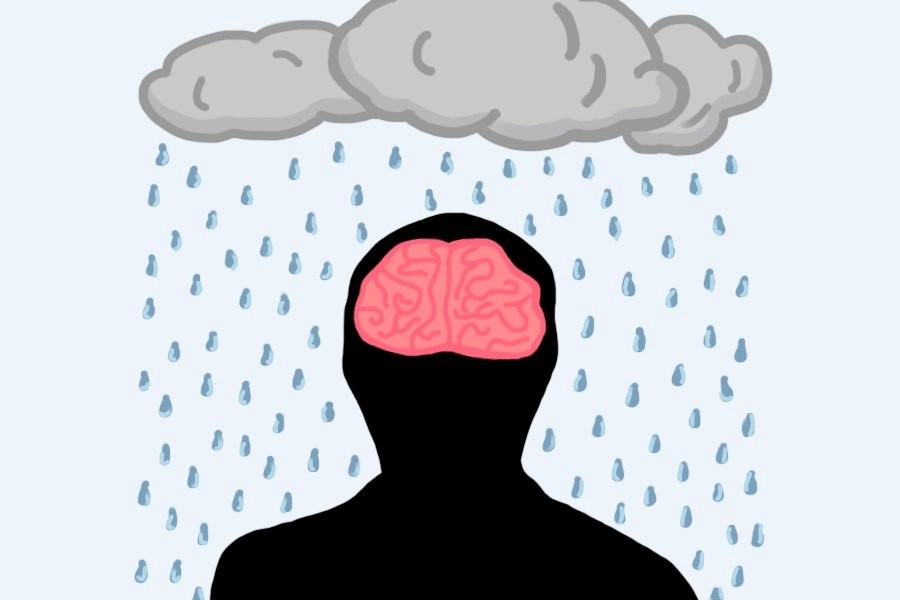This year's theme of the World Mental Health Day, " Make mental health and well-being for all a global priority" is more a wishful thinking than an achievable target in the foreseeable future. Observed globally under the auspices of the World Health Organisation (WHO) since 1992, the event is yet to raise reasonable awareness about mental health among different stake-holders, particularly in poor and least developed countries. Bangladesh is no exception to this general trend, albeit it is poised to step into the club of developing countries unless, of course, the journey is abruptly halted by the global recession and hunger threatening to throw the UN's painstakingly achieved gains into disarray.
No doubt, Bangladesh has progressed beyond expectation to the bewilderment of global research institutes and venture capitalists. On the face of it, the development is spectacular but what escapes notice is the uneven distribution of wealth in society. It will be a misstatement not to cite the improvement in living quarters of the majority of villagers. Thatched huts a rarity in most villages. Well-made tin-roofed houses and even one to two-storey buildings now dot villages. Urban facilities and services are available in rural areas. Even manual farming has witnessed a shift in favour of machines.
All this should have been a cause for euphoria but unfortunately economic disparities are widening and deepening, leaving the young generation utterly frustrated with the introduction of machines and tools for cultivation. Those who could not cope with the aggressive societal and economic transformation had to opt for migration to squalid shanties in towns and cities and thus turn rootless or floating people. Mostly illiterate, this older generation stands no chance of educating their children as well. Some of these people are those who sold their immovable property in order to send their adult sons and daughters ---mostly sons---abroad only to be cheated and get ruined. But the fortunate few have seen their stars rise phenomenally to catapult them to higher social classes.
General education has not been of particular help in pulling families out of poverty and misery overnight unless the educated youths land a government job with dubious sources of income. But the educated youths, due to their access to information and courtesy of the fantasy world presented before them by attractive ads to fuel consumerism aspire for a life affluent and luxurious. In the rat race, though, they lag way behind their peers from moneyed and educated families. Unless they are a breed of the extraordinary talented pool, they learn the bitter lesson the hard way at every step. Quite a source of mental disorder!
If the existing social and economic discrimination and disparities do not drive them insane, they are either hermits or without a spine to keep them straight. Second generation children from well-established families rarely feel frustrated as they get all the support they need to make an enviable career or go abroad for higher education and settle there. A look at Dhanmondi residential area tells the story so eloquently. There are hardly the residents who built homes originally and there is no question their next generations have ever opted for a return to their ancestors' places.
It is the new generation from weak and vulnerable families which suffer the mental agony of deprivation and some of them go astray in the process even to the extent of getting involved in anti-social acts, extremism and underworld crimes. The rise of teenage gangs in the capital city and elsewhere in recent times is an ominous sign for Bangladesh society. Desperation and bravado are on the opposite side of frustration, despondence and deprivation.
No wonder, therefore, that learners from families with firm social roots hardly ever encounter Jibananadya dilemma of calling it a day or not in the face of emptiness of life. Against the backdrop of World Mental Health Day's elevated theme, if the Anchal Foundation's survey results are placed for an analysis, the gravity of the problem can be realised. True, the pandemic time was atrocious and students desperately looking for an opening in the job market but prevented by Covid-19 opted for the ultimate act of self annihilation. As many as 101 university students ended their lives prematurely. This year up to September, 404 students did so where 219 of them were school students, 84 college students, 57 university students and 44 madrasha students.
Although 76 per cent of participants of a sample survey involving 1,640 students have expressed that academic pressure has caused them various mental disorders, school students seem to have faced the toughest challenges due to disruption of in-person teaching. At so tender an age, they have none to share their problems. It is certainly a collective failure on the part of society not to look after the young ones' mental issues.
This is exactly why a suggestion was made through post-editorials here before school opening for appointment of psychologists for educational institutions or, in the absence of such an arrangement, roving teams of counsellors for schools and colleges of upazilas, who would guide both parents and students in order to avoid such tragedies. Waste of these promising lives has huge financial implications. Investment made so far goes waste and the families also suffer consequences, if not go broke. There is a need for serious review of teaching, particularly at school levels. Caring teachers can and should be friends if not philosopher and guide, as the definition of an ideal teacher suggests, to students.


